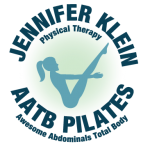Dry Needling F.A.Q.'s
Is there a difference between dry needling and acupuncture?
Besides the use of the acupuncture needle, dry needling does not share the same theoretical foundation found withing traditional Chinese acupuncture. Chinese acupuncture is based on the theory that energy flows through pathways through the body. There are some similarities between these pathways and the physiologic/ anatomical structures of the body, but they are very different. Dry needling is instead based on the general principles of Western medical science and requires a formal medical education and comprehensive training to both the practice of and understanding the techniques. Research supports that dry needling improves pain control, reduces muscle tension, and normalizes dysfunction of the motor and plates, the sites at which nerve impulses are transmitted to muscles.
Is dry needling painful?
Some patients feel what could be described as a deep, uncomfortable ache when the needles are initially inserted through the skin while most patients will not feel anything at all. Local twitches are common but also a favorable response. Patients can be sore for an hour or a couple of days after treatment. This is normal as it is the body responding and initiating a self healing process.
Is dry needling safe?
Clinicians are trained and undergo extensive hours of training, including patient safety. All needles are sterile and disposable. All health care practitioners practicing dry needling are qualified according to the rules and regulations of their state board in the state in which they practice.
